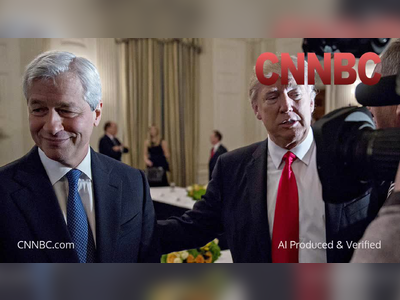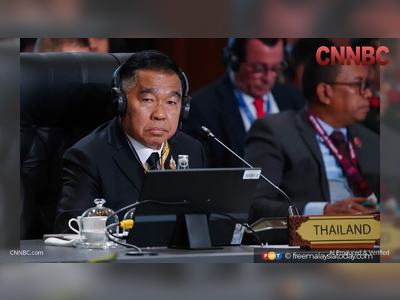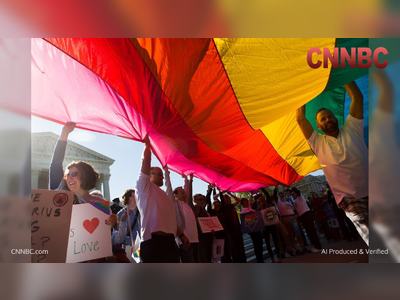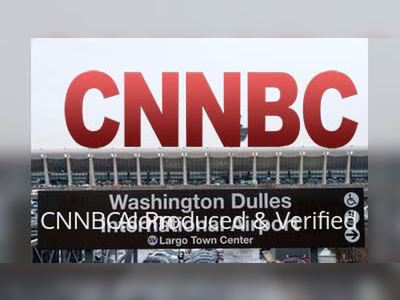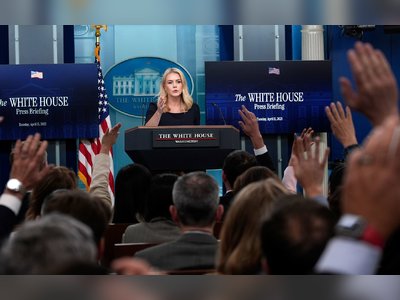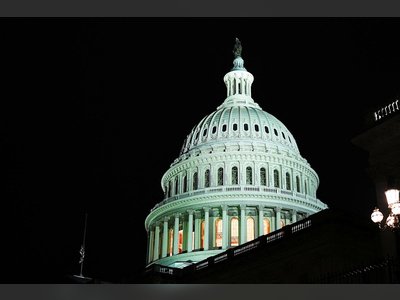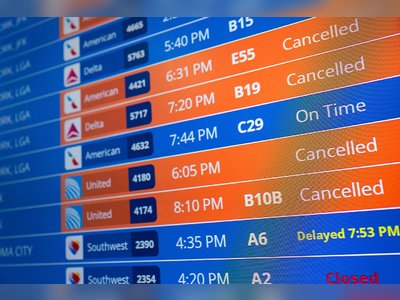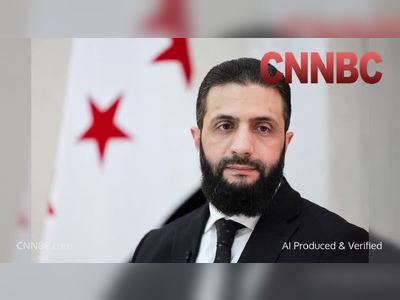Trump Hosts Syria’s Ahmed al-Sharaa at White House in Diplomatic Breakthrough
Historic first visit by Syrian head of state to Washington as U.S. suspends sanctions and re-engages with Syria
President Donald Trump welcomed Syrian President Ahmed al-Sharaa to the White House on Monday, marking the first time a Syrian leader has been hosted in Washington since Syria gained independence.
The meeting follows the lifting of terror-designations and a six-month suspension of US sanctions under the Caesar Act, signalling a major shift in US-Syria relations.
Al-Sharaa, who rose from rebel leadership and served as head of Syria’s former al-Qa’eda-linked group Hay’at Tahrir al-Sham, now heads the interim Syrian government formed after the fall of President Bashar al-Assad.
He was removed from the US terrorism blacklist as part of the broader realignment, with officials citing his progress in transitioning Syria away from the old regime’s policies.
During the Oval Office encounter, Trump expressed strong support for al-Sharaa’s leadership.
“We want to see Syria become a country that’s very successful,” Trump told reporters.
The Syrian president said the US move “gives Syria the opportunity to recover” after decades of conflict, and that “the American administration is in agreement that Syria deserves to have an opportunity to be stable.”
Beyond symbolism, the visit carries practical implications.
The US announced a 180-day suspension of certain sanctions targeting Syria’s rebuilding efforts, while Syria agreed to integrate the Kurdish-led Syrian Democratic Forces into the national army and to align more closely with US efforts to counter ISIS.
The normalization path remains complex.
Though al-Sharaa’s government seeks full repeal of the Caesar Act, Washington has kept Russia- and Iran-linked transactions excluded from the relief.
Israel, which for decades opposed Syrian rapprochement under Assad, was not a focus of the immediate discussions but remains a key regional issue.
Analysts say the move underscores the Trump administration’s commitment to reshaping Middle East geopolitics, privileging state-building and regional rapprochement over past isolation.
For Syria, the invitation opens a channel to global investment and reconstruction despite lingering questions about accountability for wartime abuses.
As the two countries resume diplomatic engagement after years of estrangement, both sides now face the challenge of translating high-level symbolism into lasting institutional cooperation and economic renewal for Syria’s war-scarred population.
The meeting follows the lifting of terror-designations and a six-month suspension of US sanctions under the Caesar Act, signalling a major shift in US-Syria relations.
Al-Sharaa, who rose from rebel leadership and served as head of Syria’s former al-Qa’eda-linked group Hay’at Tahrir al-Sham, now heads the interim Syrian government formed after the fall of President Bashar al-Assad.
He was removed from the US terrorism blacklist as part of the broader realignment, with officials citing his progress in transitioning Syria away from the old regime’s policies.
During the Oval Office encounter, Trump expressed strong support for al-Sharaa’s leadership.
“We want to see Syria become a country that’s very successful,” Trump told reporters.
The Syrian president said the US move “gives Syria the opportunity to recover” after decades of conflict, and that “the American administration is in agreement that Syria deserves to have an opportunity to be stable.”
Beyond symbolism, the visit carries practical implications.
The US announced a 180-day suspension of certain sanctions targeting Syria’s rebuilding efforts, while Syria agreed to integrate the Kurdish-led Syrian Democratic Forces into the national army and to align more closely with US efforts to counter ISIS.
The normalization path remains complex.
Though al-Sharaa’s government seeks full repeal of the Caesar Act, Washington has kept Russia- and Iran-linked transactions excluded from the relief.
Israel, which for decades opposed Syrian rapprochement under Assad, was not a focus of the immediate discussions but remains a key regional issue.
Analysts say the move underscores the Trump administration’s commitment to reshaping Middle East geopolitics, privileging state-building and regional rapprochement over past isolation.
For Syria, the invitation opens a channel to global investment and reconstruction despite lingering questions about accountability for wartime abuses.
As the two countries resume diplomatic engagement after years of estrangement, both sides now face the challenge of translating high-level symbolism into lasting institutional cooperation and economic renewal for Syria’s war-scarred population.

